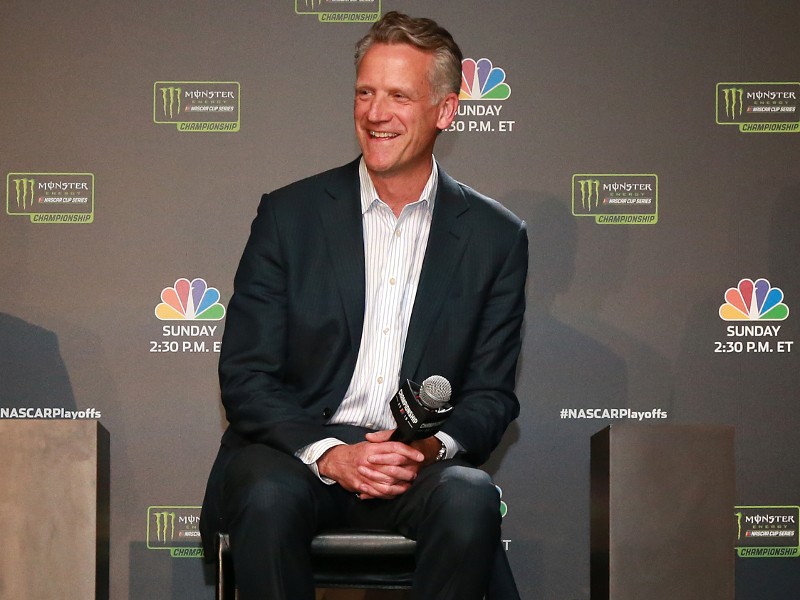HOMESTEAD, Fla. — The racing on intermediate tracks has never been better, ratings are up, bucking a trend among other major sports, and collaboration between stakeholders is at an all-time high.
That was the assessment of Steve Phelps, who took questions from the media on Sunday at Homestead-Miami Speedway before the Ford EcoBoost 400, the race that would decide the 2019 Monster Energy NASCAR Cup Series champion.
“If you look at the results — I start with the competition always — our competition right now on the intermediate tracks and the superspeedways, I believe, is the best racing we’ve ever seen. I’ll start with myself as a fan. I love watching and am super excited when we get to the intermediate tracks and superspeedways, the type of racing we are going to see.”
Phelps also shared that the quality of competition has had a positive effect on the viewership.
“The results from the competition side are working from a consumption standpoint,” he said. “If you look at the fans, what the fans are doing, how they’re responding to it, if you look apples to apples, our ratings are up 4% this year. All of sports is down 9%, we’re plus 4%.
“Importantly our share is plus 9, so there are fewer people watching television in all sports, obviously, but fewer people watching television overall. So when they were watching, not only did they watch more NASCAR, from a ratings standpoint, but when they were tuned in, they were watching more NASCAR. We were taking share from someone else, which is important. That’s television.”
Phelps also extolled the unprecedented level of communication and cooperation across the stock car racing industry.
“I’ve been teased a little bit about using the word ‘collaboration’ too much,” Phelps said. “I don’t think you can use that word too much, frankly. It’s building. The collaboration of this industry is better than it’s ever been. Really excited about where that is.”
That doesn’t mean, however, that there isn’t room for improvement in the product. Phelps acknowledged that NASCAR will work during the offseason to enhance the quality of racing on tracks of one mile and shorter.
That’s particularly important, given that ISM Raceway in Phoenix is set to host next year’s Championship 4 race.
“Do I think we need to work with our industry, Goodyear, our race teams, our OEM (original equipment manufacturer) partners to improve what we’re seeing on the short tracks?” Phelps asked. “I do. We’re going to do that in the off season, for sure.”
As his first full season at NASCAR’s helm concludes, Phelps indicated there has been strong interest from other car makers in joining Ford, Chevrolet and Toyota as competing brands in the sport.
“We had some folks out in Phoenix (last week) that were interested in coming into the sport,” Phelps said. “It’s important for us. We are working hard to try to determine kind of the timing of that, what that looks like, and what that partnership would look like moving forward bringing someone in.
“The world is a lot different than it was. We’re trying to make it as easy as possible to have an OEM come in, plug in, and start to compete on the racetrack.”
Phelps also said that some form of electrification would be part of NASCAR’s engine architecture in the future and that the ability to attract new OEMs to the sport would be dependent on running engines that maintained relevance to those in production cars.
“This engine is going to sound significantly the same as whatever the current engine is,” Phelps said. “We’re not going to have a bunch of electric cars going around. That’s not what this is about. It’s about having a relevant engine to our OE partners, both the existing Ford, Chevy and Toyota, as well as whoever the new OEs that we’re looking at.”
With Monster Energy currently in its final year as sponsor of NASCAR’s premier series, Phelps said NASCAR anticipates announcements with respect to its new sponsorship model when the industry celebrates the new Cup champion in Nashville in early December.









